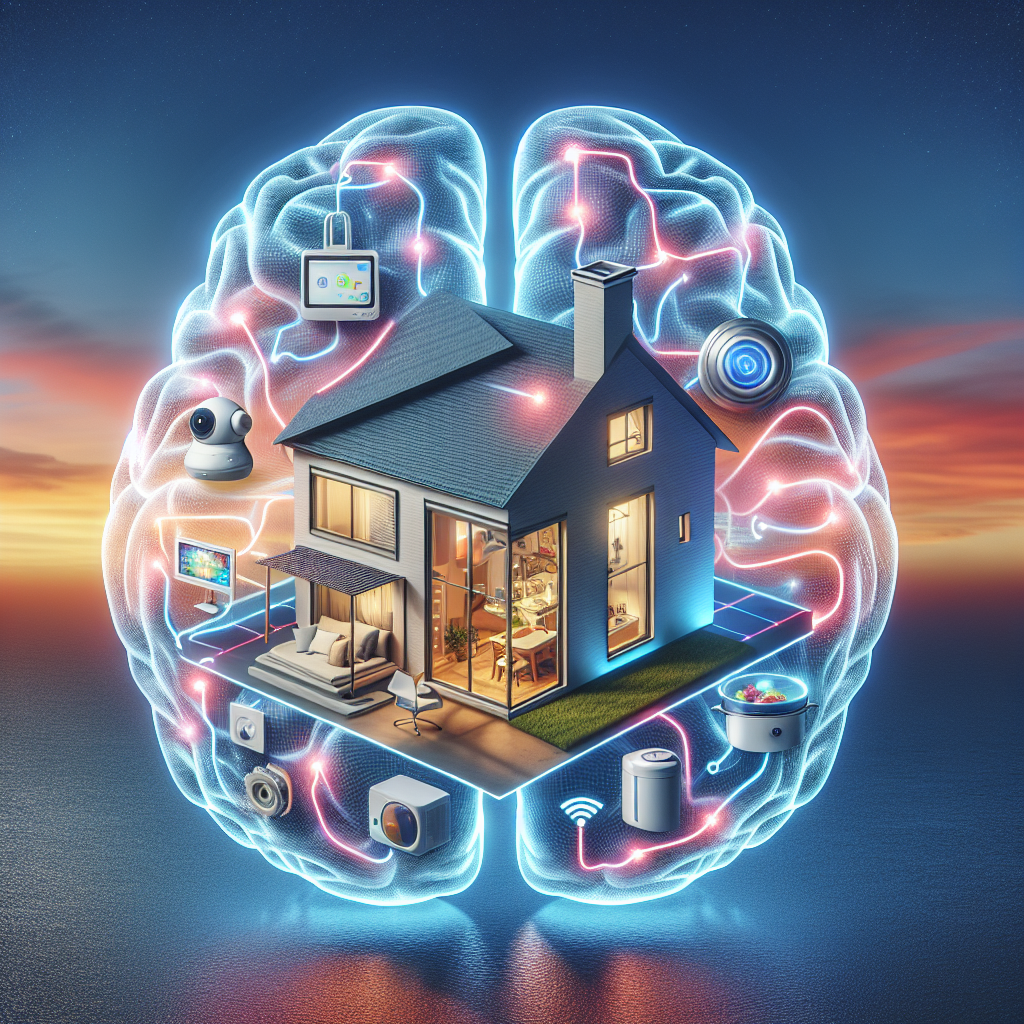Artificial intelligence (AI) is revolutionizing the way we interact with technology, and nowhere is this more apparent than in the realm of smart homes. Smart homes are becoming increasingly popular, offering homeowners convenience, security, and energy efficiency. With the integration of AI technology, smart homes are poised to become even more sophisticated and user-friendly in the future.
AI integration in smart homes allows for greater automation and customization of home systems. From controlling lighting and temperature to monitoring security cameras and even optimizing energy usage, AI can make everyday tasks easier and more efficient. As AI technology continues to advance, the possibilities for smart homes are endless. In this article, we will explore the future of AI integration in smart homes and how it is shaping the way we live.
The Current State of AI Integration in Smart Homes
AI technology is already being used in smart home devices and systems to enhance the user experience. Virtual assistants like Amazon’s Alexa, Google Assistant, and Apple’s Siri are popular examples of AI-powered devices that can control various aspects of a smart home through voice commands. These virtual assistants can adjust smart thermostats, turn on lights, play music, and even order groceries, all with a simple voice command.
In addition to virtual assistants, AI is also being used in smart home security systems to detect and alert homeowners of potential threats. AI-powered cameras can distinguish between a person, an animal, or a vehicle, reducing false alarms and providing more accurate alerts. Some security systems can even learn the homeowner’s behavior patterns and detect unusual activity to provide better security.
AI is also being used to optimize energy usage in smart homes. AI algorithms can analyze data from sensors and devices to make adjustments to heating, cooling, and lighting systems based on the homeowner’s preferences and habits. This can lead to significant energy savings and a more comfortable living environment.
The Future of AI Integration in Smart Homes
As AI technology continues to evolve, the future of AI integration in smart homes looks promising. Here are some ways AI is expected to shape the future of smart homes:
1. Personalization and Customization: AI technology will enable smart home devices to learn and adapt to the homeowner’s preferences and habits. For example, smart thermostats can adjust the temperature based on the homeowner’s schedule and preferences, while smart lighting systems can adjust brightness and color temperature based on the time of day.
2. Predictive Maintenance: AI algorithms can analyze data from smart home devices to predict when maintenance or repairs may be needed. For example, AI can detect patterns in a smart HVAC system that indicate a potential issue before it becomes a major problem. This can help homeowners avoid costly repairs and ensure that their smart home devices are always in working order.
3. Enhanced Security: AI-powered security systems will become more sophisticated in the future, with the ability to detect and respond to threats in real-time. AI algorithms can analyze data from security cameras, motion sensors, and other devices to identify suspicious activity and alert homeowners or authorities. This can provide greater peace of mind and protection for homeowners.
4. Energy Efficiency: AI will continue to play a crucial role in optimizing energy usage in smart homes. AI algorithms can analyze data from smart meters, sensors, and devices to identify ways to reduce energy consumption without sacrificing comfort. For example, AI can adjust heating and cooling systems based on weather forecasts, occupancy patterns, and energy prices to maximize efficiency.
5. Seamless Integration: In the future, AI will enable seamless integration of different smart home devices and systems. AI-powered hubs will be able to communicate with and control a wide range of devices, from smart thermostats and lighting systems to security cameras and entertainment systems. This will make it easier for homeowners to manage and control their smart home devices from a single interface.
FAQs
Q: Will AI technology make smart homes more expensive?
A: While AI technology can add to the cost of smart home devices and systems, the long-term benefits in terms of convenience, security, and energy savings can outweigh the initial investment. As AI technology becomes more widespread and affordable, the cost of smart home devices is expected to decrease.
Q: Will AI-powered devices invade my privacy?
A: Privacy concerns are valid when it comes to AI-powered devices in smart homes. It is important to choose devices from reputable manufacturers that prioritize security and privacy. Additionally, homeowners can take steps to secure their smart home devices, such as using strong passwords, keeping software up to date, and disabling features that may compromise privacy.
Q: Can AI technology be hacked?
A: Like any technology, AI-powered devices can be vulnerable to hacking if not properly secured. Manufacturers of smart home devices are constantly working to improve security measures to protect against hacking and unauthorized access. Homeowners can also take steps to enhance security, such as using firewalls, encryption, and multi-factor authentication.
Q: Will AI technology replace human interaction in smart homes?
A: While AI technology can automate many tasks in smart homes, it is unlikely to replace human interaction entirely. AI-powered devices are designed to augment and enhance human capabilities, making everyday tasks easier and more efficient. Human oversight and intervention will still be necessary to ensure that smart home devices function properly and meet the homeowner’s needs.
In conclusion, the future of AI integration in smart homes is bright, with endless possibilities for automation, customization, security, and energy efficiency. As AI technology continues to advance, smart homes will become more sophisticated and user-friendly, offering homeowners a more convenient and comfortable living experience. With the right precautions and security measures in place, AI-powered devices can enhance our daily lives and transform the way we interact with our homes.

